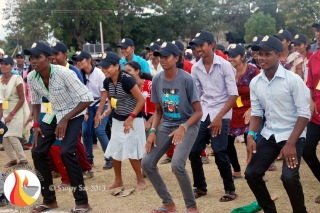(This post is dedicated to the memory of those who suffered during Black July and the torturous events that followed) Yesterday marked 30 years since the blackest day in our nations history – we call it Black July. This marked the true beginning in many ways, of an ethnic conflict that leaves our earth soaked in blood, our families ravaged and worst of all – our children hopeless.
I am one of those children. When I was born – like thousands of others – I would grow up never knowing what peace was. Bombs exploding, people dying, anger and pain were all a part of my day to day life. And I grew up in urban Colombo which was in many ways a hundred times better than anywhere else. I was desensitized to violence, in many ways I still am. Images of Siriya, Iraq etc. that cause the world to avert their eyes – cause the children of Sri Lanka to shrug and carry on. We’ve seen worse. We’ve survived worse. And sometimes – that’s something no one understands, we survived against all odds, so can you blame us for building an arsenal of weapons, like apathy? How else would we have survived?
But if there is one thing I wish that someone would take away from this post is this – we are survivors. Our parents stayed and fought. Others did the same in ways they knew best. Sometimes from here, sometimes from away – and we survived. And now we need to heal and flourish. But to heal we must forgive, and this I say to the children of Sri Lanka scattered across the globe, their souls rooted in this island. The children of my generation, you were even luckier than I was. You grew up away from the fear and the pain and the de-sensitizing. And you were blessed for that. But when you call us apathetic, I disagree. It’s not that we don’t care – it’s just we see the bigger picture, we’re painting it. We know that we are an imperfect nation, and the pain may never go away. But we are trying, so please try with us. Try to see the good, and celebrate that too.
Sri Lankan’s we all need to learn to be. Before we are Sinhala, Tamil, Muslim, Burgher. Before we are Hindu, Christian, Buddhist, or even atheist. The first lesson we need to learn is how to be Sri Lanka – that’s how we move forward together.
To quote me from earlier this year in ‘Being Sri Lankan’ – “To me – I have never imagined myself as any less Sri Lankan because I was from a minority That was not how I was raised, and that was not how the people around me saw themselves. But what scares me is that as a nation we spend so much time drawing lines around our communities, that we forget the things that bind us together”



